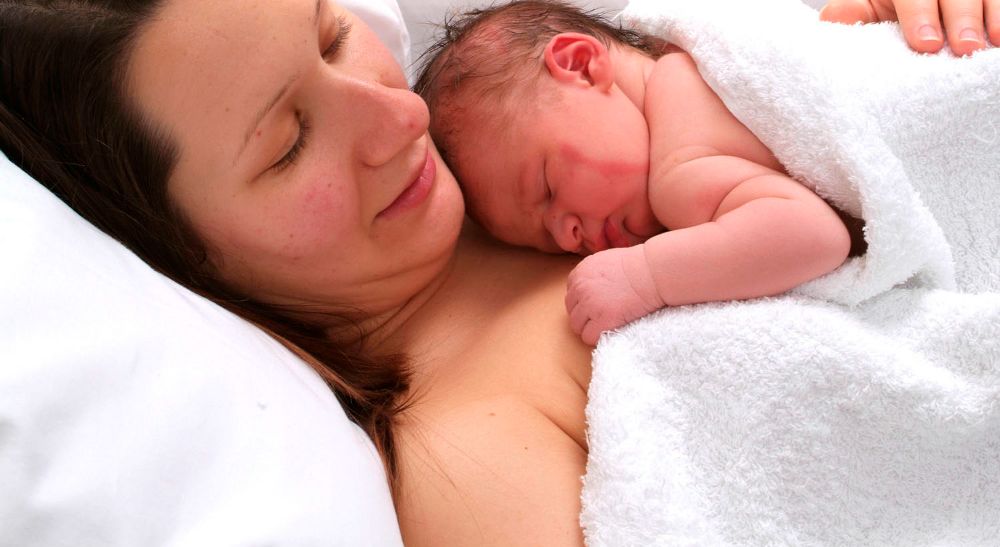You'll bleed from your vagina after the birth. It will be quite heavy at first, and you'll need super-absorbent sanitary towels. Change them regularly, washing your hands before and afterwards.
You may notice the bleeding is redder and heavier when you breastfeed. This happens because breastfeeding makes your womb contract. You may also feel cramps similar to period pains.
The bleeding will carry on for a few weeks. It will gradually turn a brownish colour and decrease until it finally stops.
If you're losing blood in large clots, tell your midwife. You may need some treatment.
When will my periods start again after pregnancy?
It's hard to be exact about when your periods will start again, as everyone is different.
If you bottle feed your baby, or combine bottle feeding with breastfeeding, your first period could start as soon as 5 to 6 weeks after you give birth.
If you fully breastfeed (including at night) without any bottle feeding, your periods may not start again until you start to reduce breastfeeding.
How soon after giving birth can I get pregnant?
You can get pregnant as little as 3 weeks after the birth of your baby, even if you're breastfeeding and your periods have not started again yet.
Find out more about when you can use contraception after having a baby.
How soon can I use tampons after giving birth?
You should not use tampons until you've had your 6-week postnatal check. This is because you'll still have a wound where the placenta joined with the wall of your womb, and you may also have tears or cuts in or around your vagina.
Using internal sanitary products like tampons and menstrual cups before this wound has healed could increase your chance of getting an infection.
Use maternity pads or sanitary towels during this time while your body is still healing.
For additional information on Blood loss – what to expect after birth please click here
For additional information on sex and contraction after birth please click here





